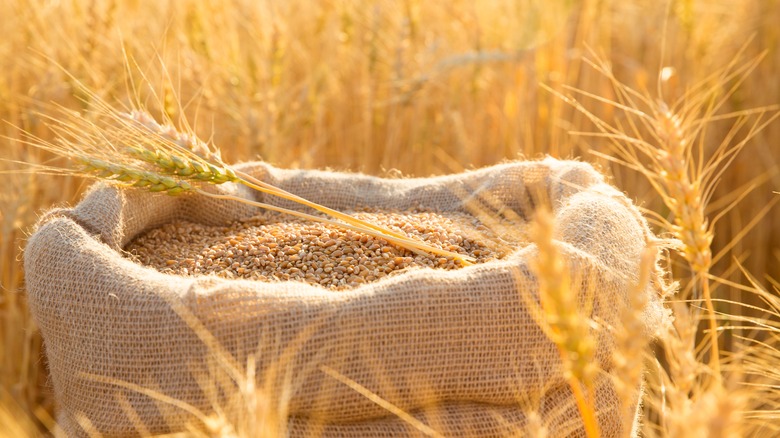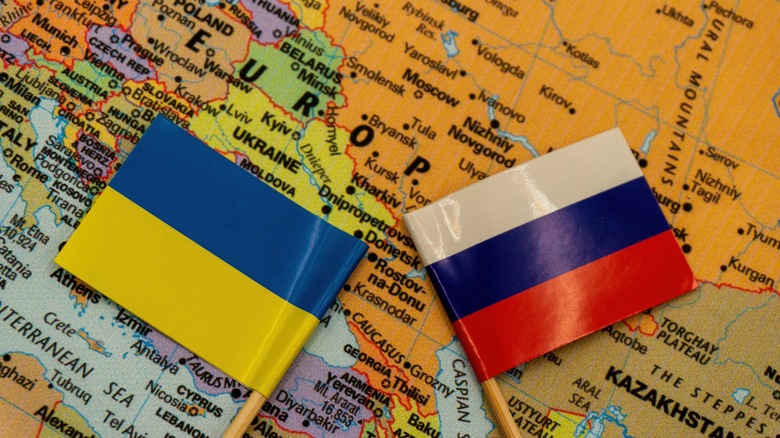New Deal Between Russia And Ukraine May Alleviate The Grain Crisis
Today, Russia and Ukraine signed a deal allowing for the export of grain from the region (per The Guardian). The reported plan is to have a team of Turkish, Ukrainian, and United Nations' (UN) staff oversee the loading of grain at a Ukrainian port. The ship will then be guided by Ukrainian ships, follow a pre-approved path through the Black Sea to the Bosphorus. The same is true of ships returning to Ukraine, though these will have to undergo an inspection for weapons.
The importance of this deal, as highlighted by CNN, is that Russia and Ukraine are major grain producers. Between them, the two produce a third of the world's grain exports with 10% coming from Ukraine (per Forbes) and 18% from Russia (per World Grain). Moreover, 90% of Ukraine's grain exports leave the country by sea (per CNN). With the invasion, the world market has been disrupted, causing a global food crisis.
The importance of obtaining his deal cannot be overstated.Robert Mardini, director general of the International Committee of the Red Cross, told The Guardian that food prices in developing countries suffered due to a war occurring thousands of miles away: "For example, our market monitoring, over the past six months has seen the price of food staples rise by 187% in Sudan, 86% in Syria 60% in Yemen, 54% in Ethiopia, as compared to the same time period last year."
What comes next?
The immediate issue following the agreement between Russia and Ukraine is that there are 20 million tonnes of harvested grain to ship. Professor Chris Elliott, the founder of the Institute for Global Food Security, told The Guardian that exports will likely begin in two weeks, then take a month before fully reaching its stride, followed by a few months before global supplies reach anywhere close to their pre-invasion levels.
Still, even with that schedule, the BBC reported that grain prices dropped by 2% just at the news of the deal. The Ukrainians, however, are more skeptical as there is no mechanism for the UN to punish Russia for not following through on the deal. In separate coverage, the BBC heard from Elena Neroba, a Ukrainian commodities analyst, who questioned whether the deal only protected the 80 vessels currently in port that can carry one million tonnes or if it included the 20 million tonnes waiting for shipment. Moreover, despite the initial drop in prices, Neroba expects grain prices to remain high as Ukrainian farmers lost out on income this year, meaning they do not have the money to invest in next year's crops. So, supply should still be low for a while.

